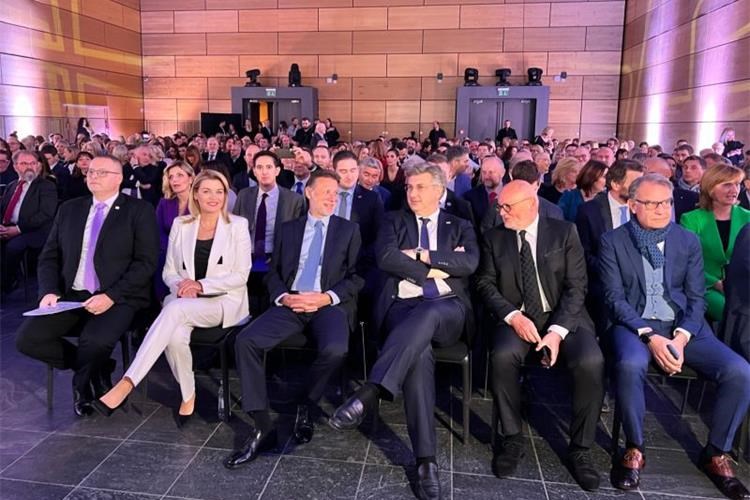- Published: 30.11.2022.
Croatian National Tourist Board celebrates 30 years of existence
The Croatian National Tourist Board (HTZ) on Tuesday celebrated 30 years of its work on creating and promoting the identity and image of the Croatian tourist industry at home and abroad and positioning Croatia as a globally recognisable and desired travel destination.
The ceremony was attended by some 400 industry and public figures, including some of the former HTZ directors and tourism ministers, as well as by Parliament Speaker Gordan Jandroković, Prime Minister Andrej Plenković, Tourism and Sport Minister Nikolina Brnjac, and Finance Minister Marko Primorac.Plenković commended the HTZ for what it has done in the past 30 years to promote Croatia and make it globally recognisable.
"It is fascinating that Croatia hosts tourists five times the size of its population and I don't think there's another such country in the world. The importance of tourism is seen in GDP and its relatively quick recovery from the pandemic crisis and despite the war in Ukraine, and the government's measures also helped that," the prime minister said.
He added that Croatia's entry into the EU's Schengen passport-free travel area, which will be formally decided on on 8 December, and into the euro area would benefit tourism.
Jandroković said that the Croatian tourist industry had made great progress in the last 30 years in terms of global competitiveness, while Brnjac, who is also HTZ President, announced that the new Sustainable Tourism Development Strategy until 2030 would be presented to Parliament on Thursday.
In the last 30 years the HTZ has become a tourism organisation with a network of 17 offices abroad and one of the pillars of the Croatian tourist industry, HTZ Director Kristjan Staničić said. He expressed hope that this year's results for tourist arrivals and overnight stays would reach those from the record-breaking 2019.
Staničić said that the good trends were expected to continue in 2023 as the forthcoming entry into the Schengen area and euro area would facilitate tourist movement because Croatia is still primarily a car destination and most tourists come from the EU and other European countries.
"A lot has been done, but there is no resting on laurels. We are facing new challenges and need to maintain competitiveness," Staničić said.
The HTZ was established as a national tourism organisation in June 1992, during the Homeland War. Slightly over 2 million tourists visited Croatia that year, generating 10 million overnight stays. This year, the number of tourists is projected at 18 million and overnight stays at over 100 million, which is close to the records from the pre-pandemic 2019.
(Hina)
